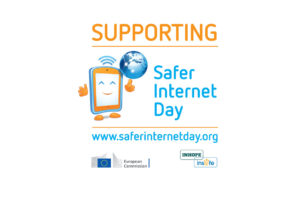
Trigger Warning: This article contains references to self-harm and suicide. If you feel your child is affected by these issues and needs to talk, Childline is ready to listen. The service can be reached at any time by chatting online at Childline.ie or calling 1800 66 66 66.
Viral challenges come and go, and many of them aren’t likely to put us in serious danger. Many of them make us laugh (like the Flip The Switch challenge or the Mannequin challenge) or raise much-needed funds for charity.
The Ice Bucket Challenge, for example, raised the equivalent of almost €95 million for ALS.
However, some challenges can be harmful, especially when they encourage us to put ourselves in physical danger.
One of the worst examples was the Tide Pod Challenge, which resulted in a significant increase in reported poisonings among young people in the US.
Although some challenges, like the Momo challenge and Blue Whale challenge, were rumoured to have contributed to incidents of self-harm and suicide, no cases of any harm were ever reported to be directly caused by them.
It’s important that your child or teen knows to ask your permission before participating in a viral challenge.
Talk to them openly about the risks involved and ask how they feel about the pressure to participate.
Here are a few ways to discuss viral challenges with your family:
Encourage them to think carefully about challenges
Talk to your child or teenager to ensure they know what they’re getting involved with.
Ask them to walk through each step of the challenge and to consider the consequences – especially when it comes to things that might go wrong.
Are they comfortable with everything this challenge could involve?
Understand the power of peer pressure
Many young people see social media influencers and online content producers as their peers.
They may want to follow their lead. Recognize that all young people feel the need to emulate people they admire – when you were young, you felt it too!
While talking to your child or teen about an online challenge, ask them what’s motivating them to take part.
- What are the real benefits of participating?
- Is it a video or image they really want to put out there?
- Are they worried they won’t be considered cool if they refuse to join in?
Keep communication open
It’s common that your child or teen might not want to chat about what’s happening in their own lives.
However, it’s important to give them frequent opportunities to talk to you openly. Try asking them about things in school, what’s trending or how their friends are doing.
These chats are important to ensure healthy communication with your child.
In addition, they might encourage them to tell you what they really think about online fads and viral challenges.
Set an example
Although they might not want to admit it, your child or teen looks to you for guidance.
Be mindful of your own attitudes to online safety and viral challenges.
If you are invited to participate in an online challenge, make sure you apply the same critical thinking that you’d expect from your child.
Are there risks to your wellbeing or reputation (or that of others) by doing this?
Above all else, remind them to come to you whenever they feel pressurised or upset by anything they see or experience online.


